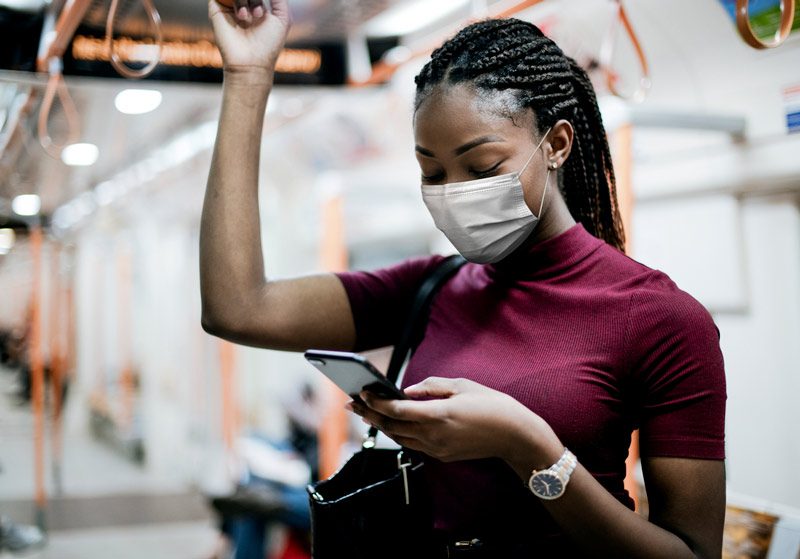The global COVID-19 pandemic is constantly turning our world upside down. It is safe to say that there is not a single person who the pandemic has not impacted. However, as CNN reports, women bear the brunt of the effects, especially concerning mental health. Compounded with the stress from isolation, school closures, and the general pervading uncertainty of the pandemic, women reported increased violence and gender disparities in employment and healthcare, particularly gender-related services such as abortion (which was deemed non-essential and thus secondary). Transgender people have also suffered from these disparities.
Women, especially women of color, have been more severely affected by the rise in mental health disorders, such as major depressive disorder and anxiety disorders, measured in 2020. Uganda has reported significant increases in assaults against women, be they physical, emotional, or sexual. Teenage pregnancies have become more prevalent, and despite these developments, women continue to be underrepresented in policy decisions.
A study conducted in Japan between 2017 and 2020 found that suicide rates among women increased by a whopping 70% at the high point in October 2020. Some reasons for this statistic may be that women are disproportionately involved in industries hit hardest by the pandemic, such as tourism and food service, and that women are likelier to have non-permanent job positions, which were more vulnerable to layoffs during the pandemic.
In the United Kingdom, the government-sponsored Self-Employment Income Support Scheme (SEISS ) indirectly discriminated against mothers who had taken maternity years in the three years prior by significantly reducing the amount of money they received. Even if they applied to be furloughed, 71% of the requests were rejected. In addition, only 45% of pregnant women working outside the home in July 2020 were given risk assessments to ensure their safety. In the UK, the number of women seeking mental health services increased by 40% from 2019 to 2021. These factors, which vary between countries, have contributed to the disproportionately negative effect that the pandemic has had on women.
These statistics demonstrate that the world’s mental health system is woefully inadequate to address the effects of the pandemic and that the existing gender divide in health has had a disproportionate negative psychological impact on women. Compared with the underwhelming attention that International Women’s Day received this year, this report has more definitively exposed just how little the global community has done to remedy gender disparities.
The prioritization of men in the workplace has assured that women have the most insecure job positions, leaving them vulnerable to the pandemic’s disruptive effects, while the cultural objectification of women has made them targets of violence and abuse. Stripped of their agency, single women are even worse off, especially if they have children to care for. Gender’s intersection with socioeconomic status and ethnicity, among other identifiers, is another aggravating factor. Low-income African-Americans have suffered particularly acute adverse effects on mental health due to the pandemic, and one can only imagine the strain placed on immigrant women. Moreover, the pandemic threatens to overturn the little progress made toward gender equality in past years.
Women will continue to suffer the worst effects of the pandemic, further deepening the status divide between them and men. Efforts are underway to address inequities in mental health care in the United States, such as those outlined in the Substance Abuse and Mental Health Services Administration’s (SAMHSA) Behavioral Health Equity Report 2021. In addition, President Joe Biden announced at the State of the Union address this year that he would introduce a plan to provide mental health care to millions. As more attention is focused on mental health, authorities must take into account the gender aspect of the pandemic’s repercussions and adjust plans accordingly.
About the Author: Matthew Ahmon is a high school junior at Horace Mann School. His interests are mainly in mental health and neuroscience. Along these lines, he is a research volunteer at the Albert Einstein College of Medicine and is filming a documentary about mental health during the pandemic. He is also looking for ordinary people to feature in his documentary. If you have any questions or concerns, please contact him at matthew_ahmon@horacemann.org.
Image by: www.rawpixel.com
The opinions and views expressed in any guest blog post do not necessarily reflect those of www.rtor.org or its sponsor, Laurel House, Inc. The author and www.rtor.org have no affiliations with any products or services mentioned in the article or linked to therein. Guest Authors may have affiliations to products mentioned or linked to in their author bios.





